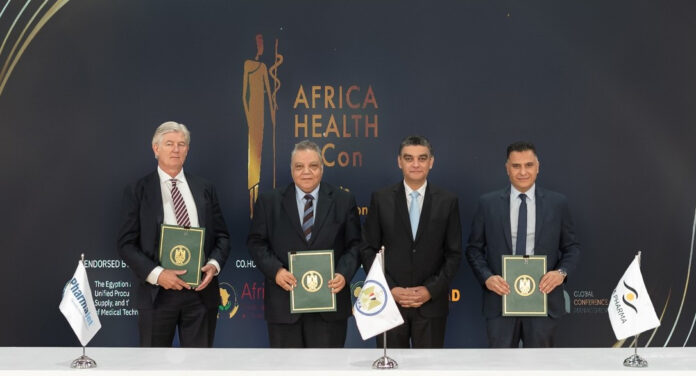
GOLDEN, Colo. & CAIRO — PharmaJet has signed a Memorandum of Understanding (MOU) with Egypt’s Unified Procurement Authority (UPA) and EVA Pharma to explore the integration of needle-free vaccine delivery into the country’s routine immunization program. The agreement was formalized at the African Health ExCon conference in Cairo on June 26.
The collaboration focuses on incorporating PharmaJet’s Tropis® needle-free injection system into Egypt’s administration of inactivated polio vaccines. The MOU outlines plans for distribution, technology transfer, local manufacturing, and new product development, with the broader goal of making needle-free delivery a standard part of public immunization strategies in Egypt and the surrounding region.
Egypt’s UPA aims to adopt advanced technologies to lower immunization costs, reduce vaccine hesitancy, and strengthen pandemic preparedness. According to PharmaJet, Tropis adoption could lead to cost savings of more than 38% over six years, while improving vaccine acceptance and coverage.
“This collaboration with UPA and EVA Pharma has the potential to enable the children of Egypt to benefit from reduced pain and faster vaccine administration,” said Paul LaBarre, Vice President of Business Development at PharmaJet. “It also supports local manufacturing and product development that could extend regionally.”
EVA Pharma, a major pharmaceutical manufacturer in the Middle East and Africa, will support local production of the needle-free devices. “This partnership can make immunization safer, more accessible, and less painful,” said Nicolas Boege, Director at EVA Pharma. “We are proud to help localize this innovation and strengthen Egypt’s public health infrastructure.”
The initiative aligns with Egypt’s Universal Health Insurance project and builds on national programs focused on early childhood development, such as the “1000 Golden Days” campaign.
Tropis has been used in global polio campaigns and, in recent clinical studies, showed over 94% acceptability among healthcare workers and caregivers, faster administration, and fewer adverse events compared to traditional needle-based delivery. The partners hope the technology can help position Egypt as a regional hub for needle-free immunization solutions.

